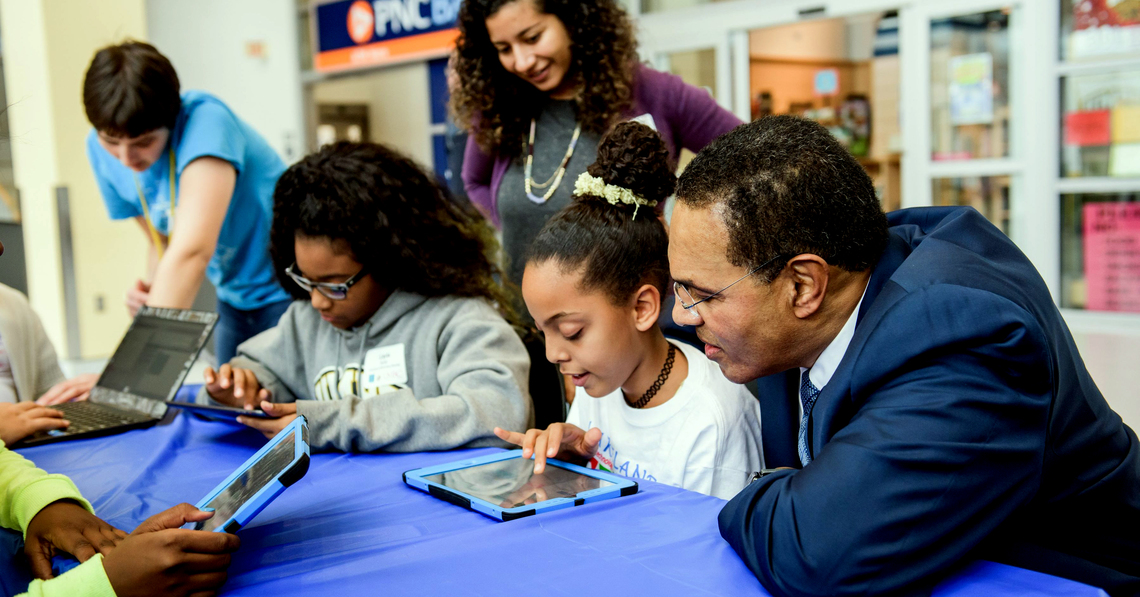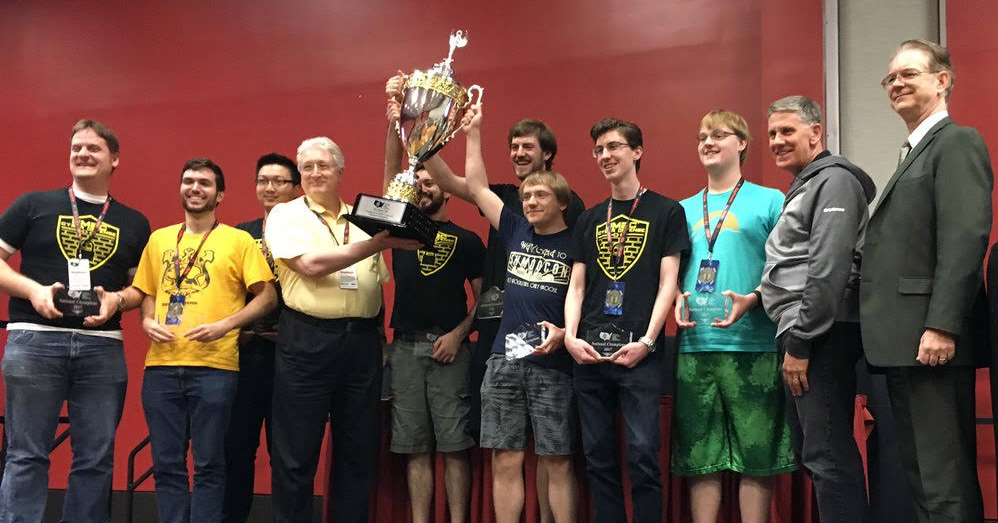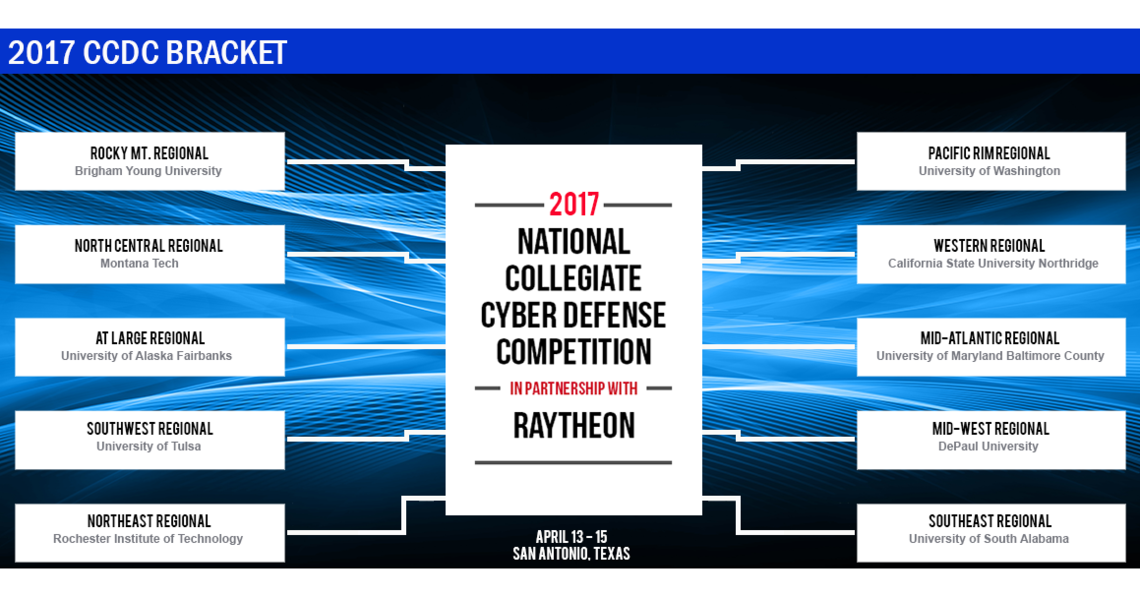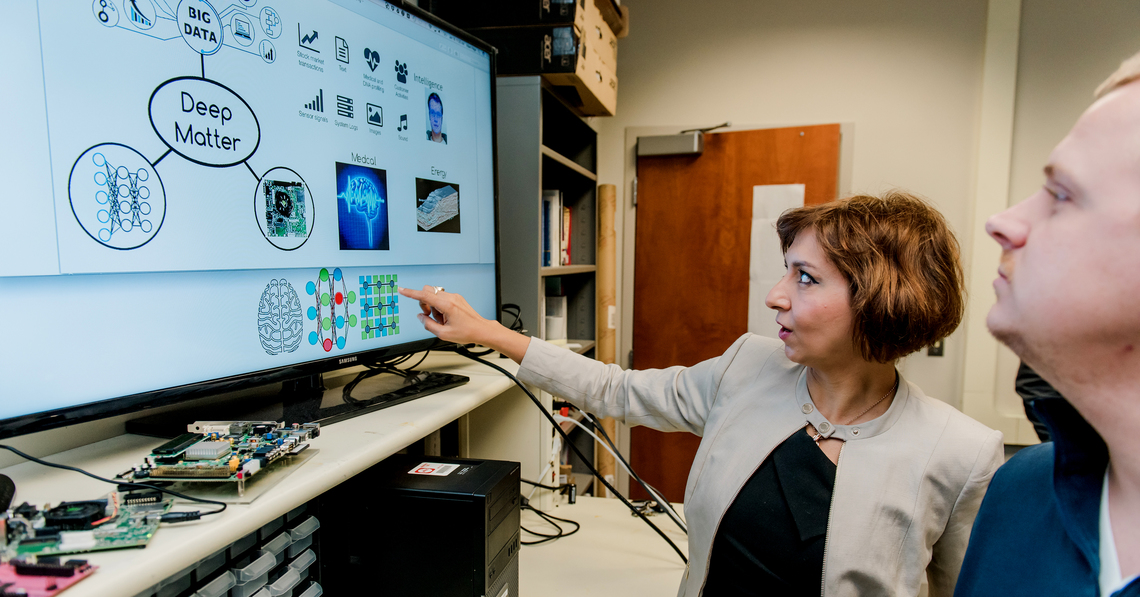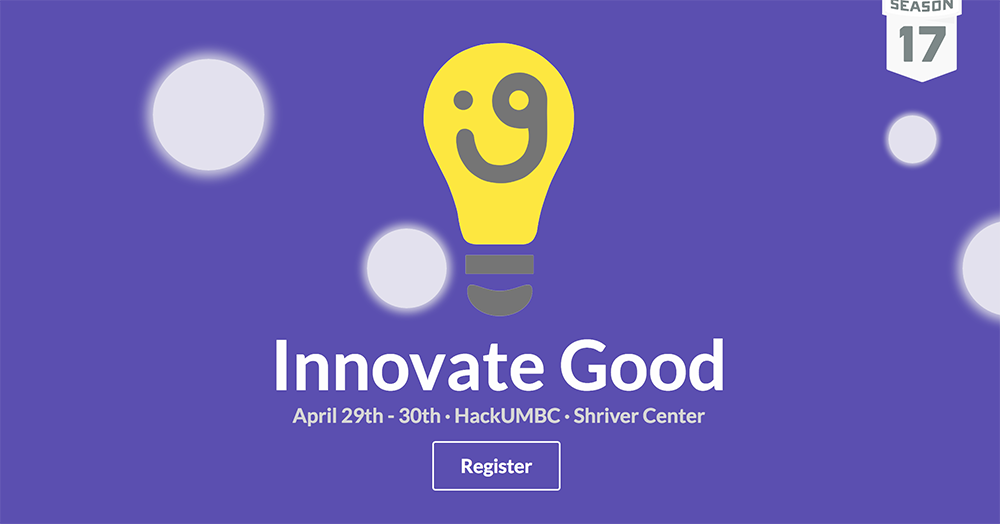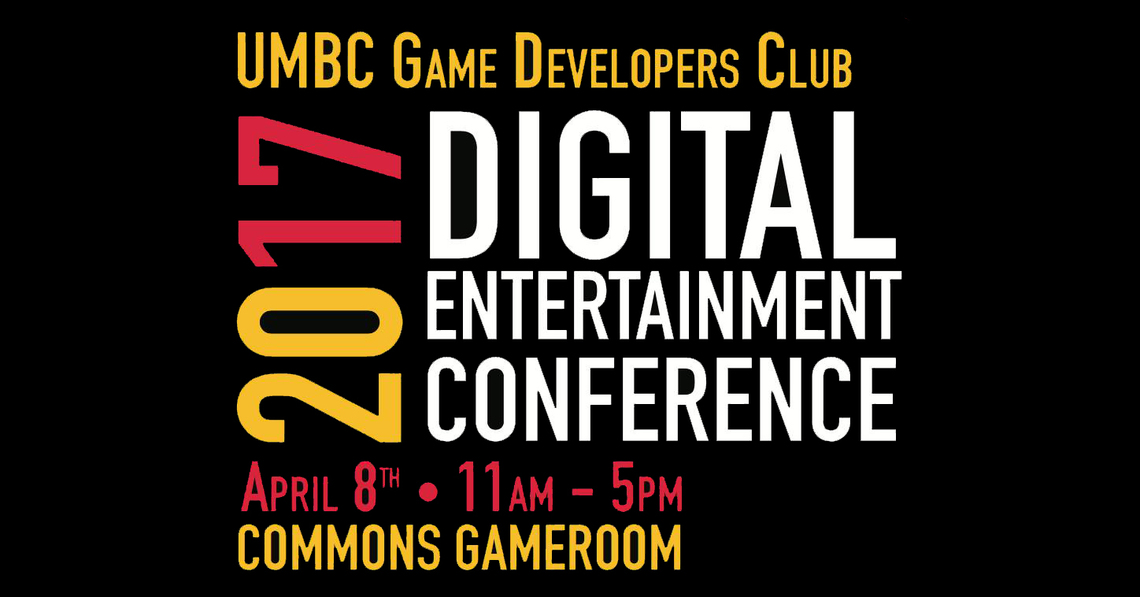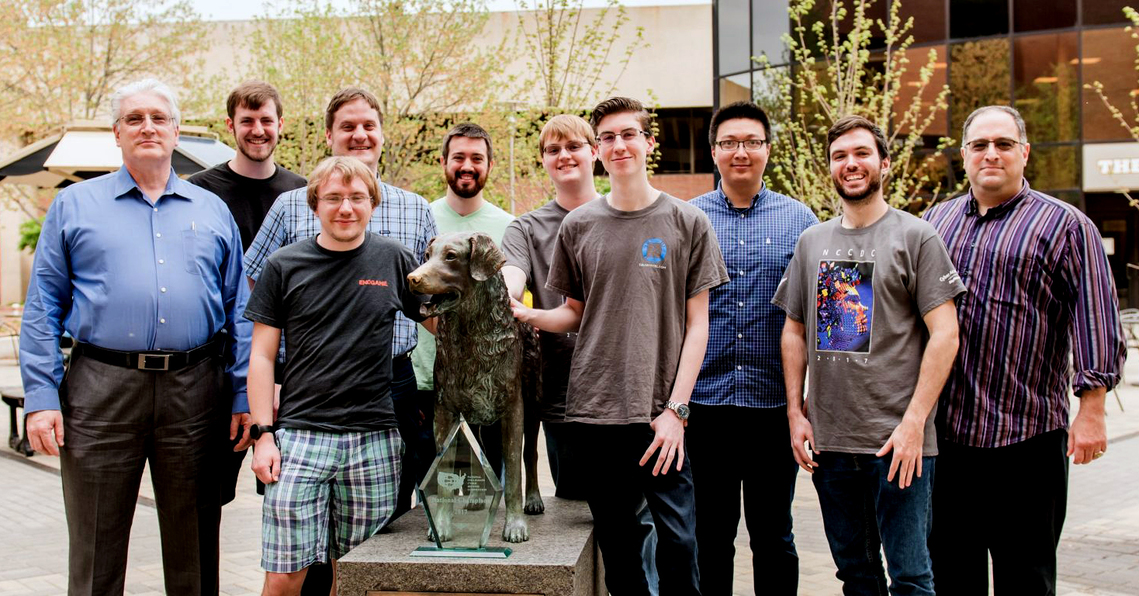
The UMBC Cyber Defense Team took first place at the 2017 National Collegiate Cyber Defense Competition held in San Antonio, Texas this past weekend. The team defeated nine other regional winners from across the country in a contest to protect their networks from cyber attacks and threats efficiently and effectively.
“We are as excited about the national cyber defense competition as we are about an NCAA athletic competition,” says UMBC President Freeman Hrabowski. “UMBC is developing brainpower to protect our nation and build the economy in the Baltimore region. Our partnerships with the Department of Defense, NSA, the Naval Academy, NIST, and dozens of cyber companies at bwtech@UMBC and beyond expose students to authentic problems and allow them to immediately provide value to government and business employers. Our campus is an ecosystem for cybersecurity talent development.”
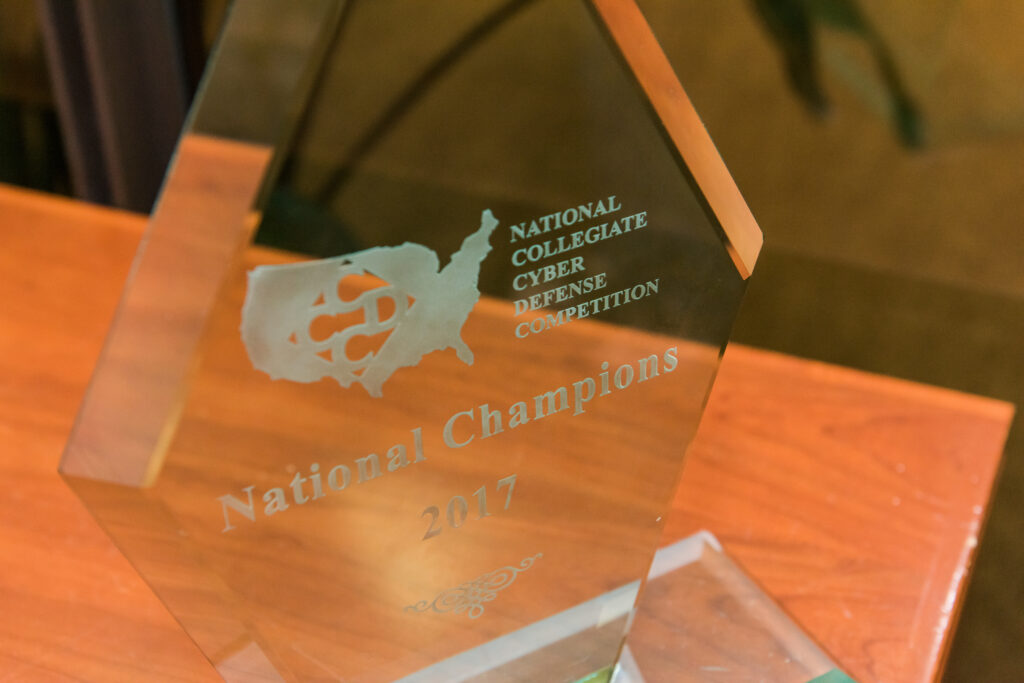
Cyber Dawgs’ faculty advisor Charles Nicholas, professor of computer science and electrical engineering, calls the win “my proudest moment at UMBC.” He explains that the competition puts the team in a realistic situation that requires them to use resources and rely on their colleagues and teammates in challenging situations. During 14 hours of competition over two days, the teams are not able to interact with their coaches. Eight students used a dozen pieces of equipment throughout the tournament to keep the services on their network accessible and make sure that the systems are not brought down by hacks or cyber attacks.
“We are absolutely ecstatic with our win at Nationals. We have worked very hard to be the first team from the Mid-Atlantic region to win nationals,” said Christian Beam ‘18, computer science. “I am filled with pride to be a part of such an amazing team, and we are looking forward to returning to compete at the 2018 Collegiate Cyber Defense Competition!”
Leading up to the national and regional tournaments, the team spent hours training, studying, and reviewing scenarios that they might encounter during the competition. They prepared and practiced counterattacks to combat attacks from the other teams.
In early April, the Cyber Dawgs placed first in the Mid-Atlantic Collegiate Cyber Defense Competition, and solidified their spot in the National Collegiate Cyber Defense Competition. The Cyber Dawgs beat teams from Towson University, the University of Maryland, College Park, and Drexel University during the regional competition.
Originally published on UMBC News. Photos by Marlayna Demond ’11 for UMBC.
